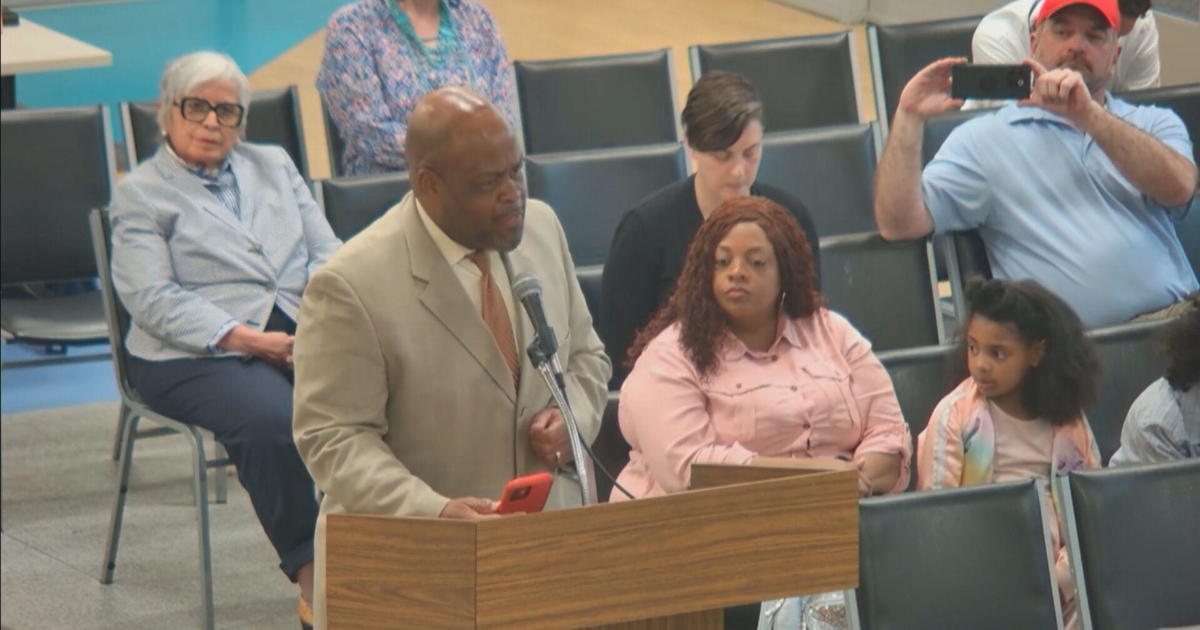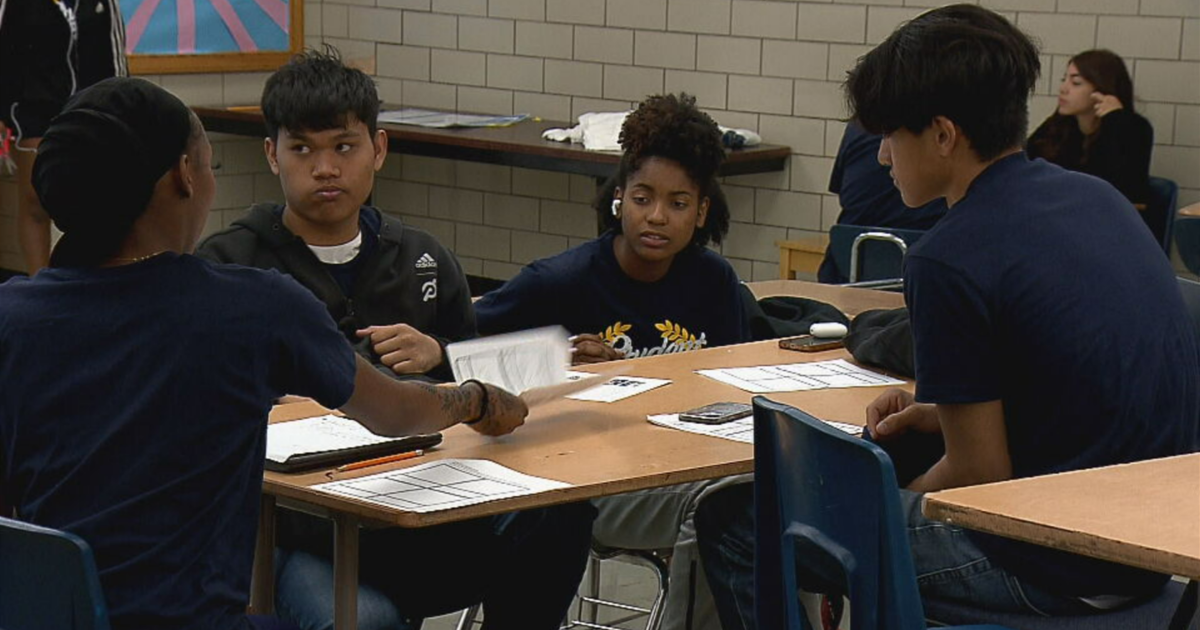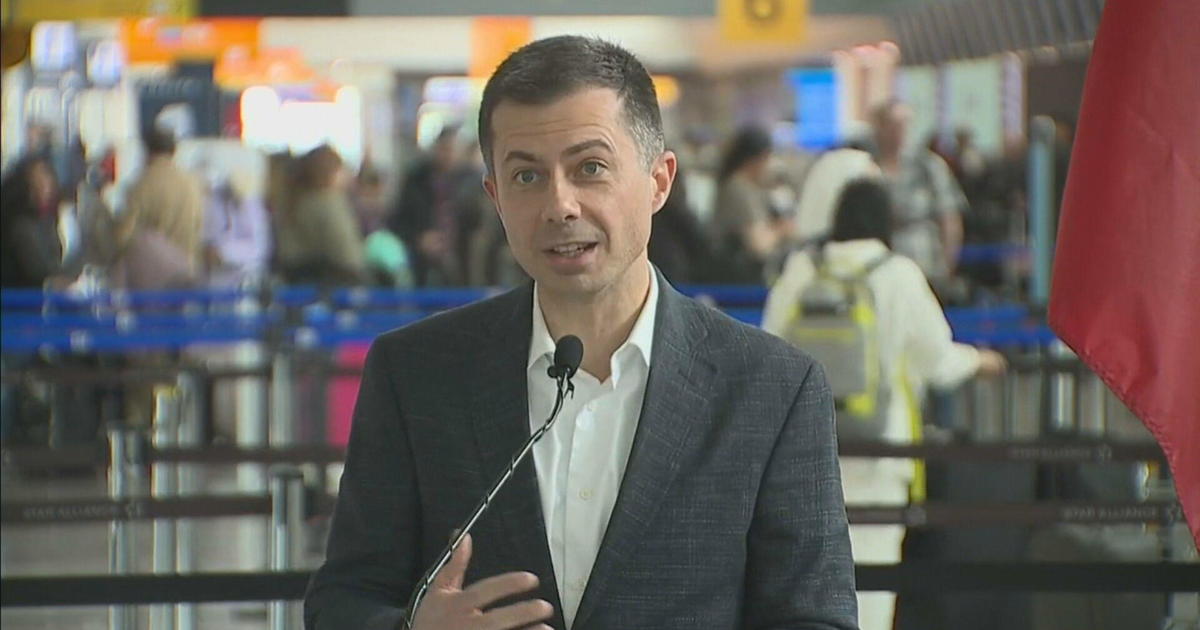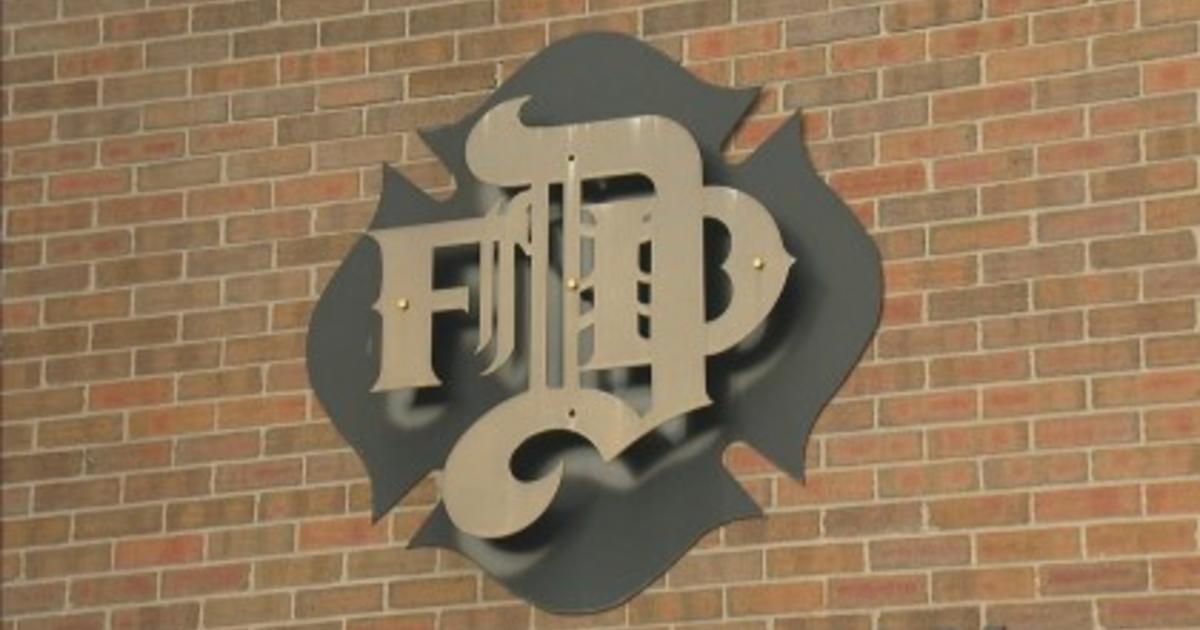RTD Considers Replacing Security Guards With Social Workers
DENVER (CBS4) — A board member for the Regional Transportation District is calling for RTD to end its contracts with private security officers. Shontel Lewis first introduced the measure in June. Lewis hopes to reallocate those funds for social workers and mental health specialists. The president of transit union ATU 1001 says the resolution would put operators and passengers at risk.
"Operators are feeling physically threatened, as a matter of fact, they are being physically threatened," said Lance Longenbohn, President of ATU 1001, "They get spat on, drinks thrown at them. We don't know if providing mental health and social services to offenders is RTD's job, but we are certain it is their job to keep their bus and train operators safe."
Longenbohn says operators are concerned about the loss of security.
The resolution calls for RTD to terminate the Allied Security Contract no later than Dec. 31, and reallocate the funds toward mental, behavioral, and social supports. The $27.3 million dollars would be invested in social workers, medical professionals, homeless outreach workers.
The resolution will be presented during an RTD committee meeting Tuesday.
Longenbohn says transit operators make over 50,000 security calls every year. He says that number would be higher if security weren't ahead of many threats.
"They're not waiting for an operator to call them. They're in the area handling situations before it even gets to an operator," said Longenboh, who also fears for the safety of passengers. "Light rail operators have to walk from one end of the train to the other to clear the train. Right now there's an increased risk. Especially while there was no fare collection."
Longenbohn says the number of calls is rising along with tensions during the pandemic. He believes some scenarios could benefit from a behavioral health approach, but many operators wouldn't trade security for social work.
"If someone is going to assault an operator, they're likely to continue to assault someone who's not prepared to physically handle them or defend themselves," said Longenbohn, "The operators are worried."
Longenbohn says the RTD Transit Police consists of only 11 officers. He says RTD is going to hire four more who will undergo four months of training. Lewis said her proposal does not include cutting any funding for the RTD Police force, because RTD can oversee how those officers are trained.
"Eleven officers. They would be the only resource for a direct response other than calling 911. Union Station at two or three in the morning is a scary place to be," said Logenbohn.
The assault of man inside Union Station by Allied guards in 2018 is part of why Lewis wants to terminate the contract.
"If it's an issue you need security for, a criminal response, that's who responds to that. But if you have someone who is having a mental health crisis, we don't want to send a security guard there," said Lewis to CBS4 in June.
The resolution also asks that RTD uses crisis intervention teams trained to respond to mental, behavioral, and social challenges, in order to "conduct deep listening sessions with bus and rail operators, as well as other impacted front-line staff and riders, to identify and prioritize their own personal safety needs and those of our RTD patrons."
"Essentially, it's an ask of staff to hire more mental health professionals that can respond to mental health crises for individuals that are on our platforms or on our services. Our staff receives calls from the general public saying this person is in crises, and so our system wouldn't necessarily change, what would change is the person who responds to it," Lewis told CBS4.
According to the resolution, the termination of RTD's contract with Allied Security also takes into consideration the experiences of BIPOC.
"RTD acknowledges the historical trauma and harm that Black communities have experienced at the hands of police and security personnel… Black and Indigenous Communities, Communities of Color, low-income communities, unhoused communities, and our most marginalized and most vulnerable communities depend on the RTD for their transit needs… transit Security Officers, Allied Transit Security, and Secondary Employment Police Officers should be accompanied by crisis intervention teams trained to respond to mental, behavioral, and social challenges."
Longenbohn says social services are important, but he was never asked for his input on ending the contract. He says if RTD cuts ties with Allied Security, their operator shortage could become even larger.
"There are some folks who aren't willing to make that sacrifice or take that risk," said Longenbohn.
In a statement to CBS4, RTD says "we are unable to comment at this time as the full Board has not yet had opportunity to discuss the resolution."
Read the full resolution here: http://rtd.iqm2.com/Citizens/FileOpen.aspx?Type=1&ID=2992&Inline=True



